Colonel Anil Athale (retd)
Community policing and strict control over the sale and distribution of explosives and detonators will go a long way in curbing the menace, says Colonel Anil Athale (retd)
The Mumbai bomb blasts of July 13 were a reminder that war declared on us is not over yet. Right at the outset it must be clearly understood that what the terrorists aim at (how so ever improbable it may sound) nothing short of destruction of India as we know it.
No war can ever be won with purely defensive strategy.
The basic Indian approach in this war has been defensive and reactive. We, unlike the Americans, have not even talked of 'disrupting and destroying the terror network'.
This applies not just to terror infrastructure in Pakistan but also within the country. For a long time we even denied that any Indian could be a terrorist.
...
Remember Punjab of 1980?
All our actions from increased patrolling of land and sea borders, border fencing, investigation teams, installation of CCTV's and more and more police posts, are all measures that can be classed under 'anti-terror' with very little or no 'counter-terror' component.
It is like a doctor who tells a patient that he only specialises in 'post mortems' and can neither cure nor prevent the patient from illness.
As someone intimately involved in the actions to counter Sikh militancy of 1980s and 1990s, one is haunted by the spectre of repeating the same mistakes again and again.
Let it be clearly understood that Khalistani movement ended when under K P S Gill and earlier under Julio Ribero, India followed a policy of 'bullet for bullet' and ruthless elimination of terrorists.
Warped ideology of the terrorists is very much alive
We were helped by the fact that beginning in 1988, under Benazir Bhutto, Pakistan stopped its support to Khalistani cause.
Today, it appears that under international compulsion and due to domestic turmoil, Pakistani official support to jihadi elements has similarly dried up.
Yet the warped ideology of the terrorists is very much alive, both in India and Pakistan. Therefore it is unlikely that unless we take effective counter action, the jihadi attacks in shape of bomb blasts will continue.
It has been repeated over several decades now that Indian approach to deal with the terror threat is basically reactive and post event rather than pre-emptive.
Counter-terror strategy should prevent attacks and not catch terrorists after the act
Claims have been made that in last decade or so, many terror attacks have been disrupted or prevented.
But unlike either the UK or the US, one has not heard of a single case of plotters being brought to justice. The singular aim of any counter-terror strategy should be to prevent terror attacks and not catch the terrorists after the act.
With the exception of 2001 attack on the Indian Parliament and the Mumbai attack of November 26, 2008, all other terrorist attacks have a recurring pattern -- bomb blasts in crowded places to achieve maximum casualties.
With more efficient border control and quick reaction teams in place, it is hoped that the commando style attacks are history. However the other type of attack, bomb blasts seem to continue as its reoccurrence has shown.
Seal the terror paths from the neighbourhood
There are two clear aspects to the threat -- human and material. It is extremely difficult to spot and neutralise terrorist cells as these are not ordinary criminals but use the cloak of religion or ideology to gain support and sympathy.
The flow of men/women with evil intentions form neighbouring countries is the first issue that needs to be tackled. To a large extent the fencing of the Western border has succeeded in blocking this route.
Nepal and to some extent Sri Lanka, have emerged as the new transit routes for terrorists.
The problem is particularly difficult in case of Nepal since we have an open border with that country. It is therefore mandatory that the ingress point to Nepal on the Tibet border and at Kathmandu airfield be jointly manned or a close co-ordination with Nepalese immigration authorities be established.
In case of Sri Lanka, the problem emerged only due to neglect and similar co-operation with Sri Lankans should be established. In case of Bangladesh, the border fencing should be expedited and vigil be maintained in all the border districts.
Neutralising the local element
If it is understood that the terror campaign against India is aimed at the destabilisation of the country, it is akin to waging war against the State.
Since the terrorists believe in 'total war', the counter to this must involve not just the police or the security forces but the citizens at large.
Violence in Kashmir valley has been brought under reasonable control by establishing a 'counter insurgency grid', a system of interlocking posts to keep an eye on the populations. In order to help policing and detecting malcontents, India must establish a 'counter terror grid' in all major cities.
What the ordinary citizen can do
In case of Maharashtra, in urban areas help could also be taken from 'Ganesh mandals'.
What is envisaged is that all these organisations keep a vigil in their areas and report any suspicious movements to designated police authorities. Thus without incurring any extra cost we will add a thousand eyes to our intelligence agencies.
This method has another added advantage, that is ordinary people will be less afraid to get in touch with the police. Such is the reputation of police that a citizen hesitates to get in touch with them even when he/she has some input.
In many communally sensitive areas like Bhiwandi near Mumbai, the system of mohalla committees has worked. The police should invariably give weightage to their views while arresting suspects. This will enhance their reputation as well as effectiveness.
In this war against terrorism, every citizen is a soldier
The success of this measure is premised on the fact that the biggest sufferers due to the activities of the fringe elements are the minorities as the whole community gets defamed and suffers discrimination, the worst being a communal backlash.
It is time that law abiding citizens get an avenue to contribute to counter-terror operations.
The law on verification of guests in lodges and hotels is already in place. This needs to be made more stringent and failure by a hotel or lodge owner to report on suspicious activities or doubtful identity of a guest must automatically result in cancellation of his licence.
In this war against terrorism, every citizen is a soldier. The creation of network of 'community policing' initiative will give citizens a sense of participation, especially to the members of the minority community.
Eliminating the fear in the minority
It was seen during the 7/11 train blasts in Mumbai when members of minority community living close to rail tracks, were the first ones to come to the help of the victims.
The author wishes to recall an incident that happened about ten years ago. This author while driving on a two wheeler found an accident victim lying by the roadside with many on lookers but none coming forward to help.
Finally, a tempo stopped and the victim was taken to a nearby hospital. The driver of that tempo was a Muslim. Once the victim was admitted to hospital, the tempo driver told the author, "Sahib, I did this only because you were there and took the responsibility. If I would have taken the victim to hospital, the police would have harassed me first!"
The community policing initiative will take care of this fear in the minority and help them come forward with information about the malcontents in their community.
Currently, the government is in coma
Ideally, the central government should pass a law making possession of explosives and arms as a serious offence and launch a campaign to eliminate the means from the hands of the terrorists.
But currently the government is in coma so the initiative has to come from local police authorities in cities.
The police commissioners will be well within rights to ban entry and possession of 'dangerous substances' in city limits.
They have the powers to arrest and extern such persons.
This is a politically 'neutral' measure and makes no distinction between 'saffron or green' arms and explosives.
Killing the detonator
The key to control of IED blasts is control over detonators. Without these, explosions are difficult to be carried out. Improvised explosives are possible but 'improvised' detonators are extremely difficult to make and are unreliable.
If we concentrate just on establishing control over detonators, the battle is won. It is true that detonators are widely used in mining industry and stone quarries as well as largescale construction projects.
The control over them should be at both the manufacturing and user end.
Possession of detonators without valid permits should be made a cognisable offence with mandatory and deterrent punishment. In case of unauthorised sale and pilferage, the stockist must be made similarly responsible.
Carrying out candle-light marches ain't enough
The civil society must take initiative to establish community policing and neighbourhood watch groups in co-operation with the local police. This is more important than carrying out candle-light marches.
Pending laws on control of explosives and arms, the local police authorities should make rules to ban their entry.
These two measures will substantially deal with the terrorist threat. But there is very little hope of a government in coma acting.
If the government cannot even create enough grain storage and lets food rot while people go hungry, the only hope is a people's initiative and action by the local police authority.

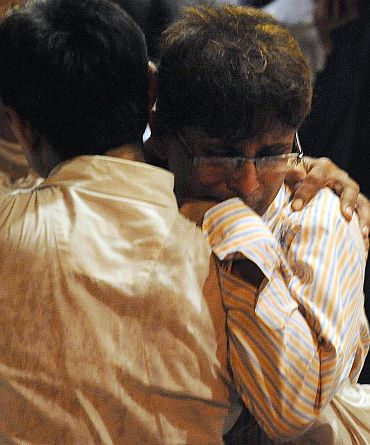
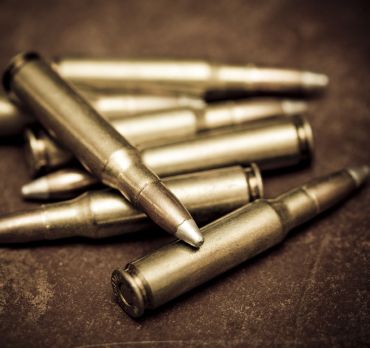
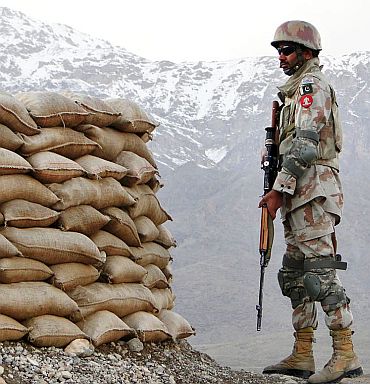
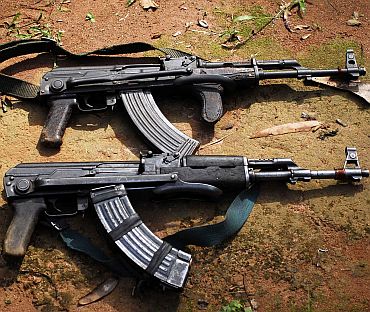
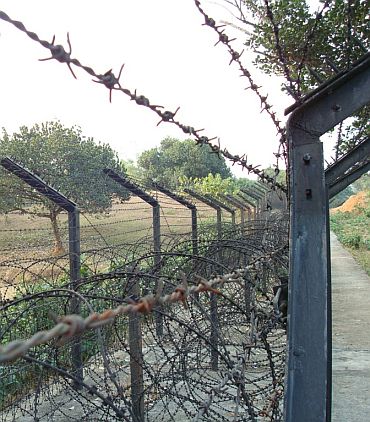
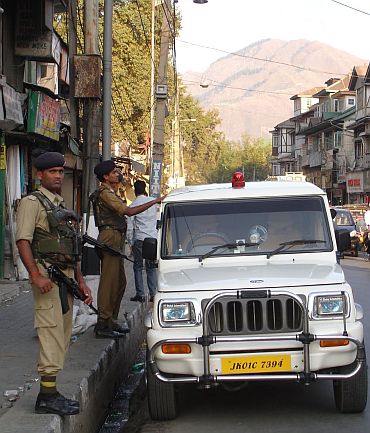
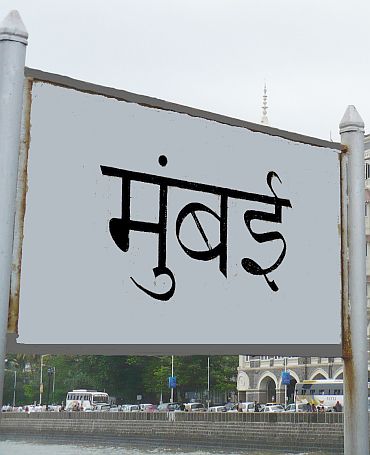
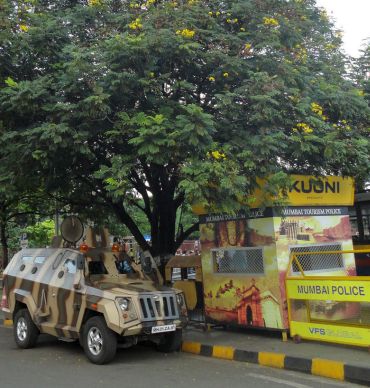




article